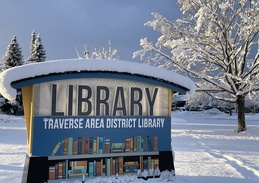Speaking Of Speech And Forgetting The Unforgettable
Sept. 16, 2016
Colin Kaepernick, the back-up quarterback for the San Francisco 49ers National Football League (NFL) team, has created a bit of a brushfire by refusing to stand when the national anthem is played prior to games. He says he’s protesting police violence against minorities. Several NFL players and other athletes have joined him.
To the extent that it has fostered a discussion about the First Amendment, Kaepernick’s refusal to stand has been a good thing. Any time we’re talking about the Bill of Rights is useful time. It’s not clear his effort will accomplish anything else.
President Obama says Kaepernick is simply exercising his constitutional rights, difficult as it may be for many to accept. He is absolutely right insofar as the government is concerned. The First Amendment is pretty specific: "Congress shall make no law ... abridging the freedom of speech "¦ "
Protesters invoking their rights frequently misunderstand this. They assume their rights give them free rein to say and do almost anything without consequence.
They’re only partially right. The government, at any level, can’t create laws abridging speech. But the private sector, at any level, can and does make all manner of internal rules abridging all kinds of speech. While they can’t muzzle you, they can end your employment.
CareerBuilder, an online recruitment firm that tries to keep track of such things, says people lose jobs every day because of nonwork-related and work-related speech or behavior. It doesn’t necessarily involve politics.
Big business, and probably not-so-big business too, now regularly monitor social media, chat rooms and comment sections. Those misogynistic, homophobic or racist comments and jokes somebody thought were cute regularly end jobs. Those photos you decided to post showcasing some bacchanal weren’t as enchanting to the bosses who saw them and decided not to hire you.
The thing is, the First Amendment doesn’t much apply to the private sector, including the NFL. Kaepernick and others probably could be disciplined, given the almost unlimited power the league commissioner possesses. But they won’t be, because doing so would exponentially increase the size of the protest.
The public backlash against Kaepernick and his allies, however, was swift and sometimes harsh. Some thought the nonstanders should be benched or fired. Others had less charitable suggestions. The protests over the protest began to overwhelm the original point.
Will any of it make a difference to the actual target of the protest? Probably not. The core racial issues still bedeviling us are more complex than what a single issue represents. There is more to it than "white cop shoots black person," which is, in reality, a rare occurrence. (In fact, according to Justice Department stats, significantly more white people than minorities are shot by law enforcement.)
Will there be a second act or simply more non-standing gestures before games? To his credit, Kaepernick has pledged $1 million to an as-yet-unnamed community organization sharing his concerns. That would be helpful to any legitimate organization working in cash-strapped neighborhoods.
The protesters have our attention, weekly access to national media, contacts with decision-makers and financial resources. They have an opportunity here to make some inroads into real discussions about economic deprivation, the failure of inner city public education, the lack of adult male role models, still-pervasive racism, and violent interactions with law enforcement.
Using the national anthem as a backdrop for protest opened a door. When the season ends and the anthems stop, will anybody be willing to walk through that door, get into the neighborhoods and go to work on the real issues, or will this flutter and die like a bad pass?
We’ve just gone through the 15-year anniversary of the attacks of September 11, 2001. We’ve reviewed all the terrible video, again, and wrung our hands about the resulting Wars That Never End. We’ve again mourned the lives of more than 3,000 people who died in New York, Washington, and Shanksville, Pennsylvania, that day.
We’re repeatedly told we should never forget, all the while forgetting a significant part of that day: that tens of thousands of people did not die, that they were the beneficiaries of the greatest rescue operation in our country’s history.
We focus on the the Twin Towers but forget there were altogether seven buildings destroyed that day, including the total collapse of the 47-story 7 World Trade Center. No one knows for sure, but the best estimates are that there were more than 30,000 people in those seven buildings. First responders helped guide 90 percent of the potential victims to safety.
It was the worst day ever for the New York Fire Department, which lost 343 fire fighters and paramedics, and for local law enforcement agencies, which saw 60 officers perish.
But it was the best day in the long and storied history of civilian rescue operations. Ever. We shouldn’t forget that either.
Trending

Our Top Stories of 2025
Each year, we look back at the stories we’ve shared over the last 12 months and pull together the ones that got the mo… Read More >>
Winter Break at the Library
Trying to keep the kids busy while school is out? Head to the library! Dec. 22, take your 12+ tweens and teens to the Mesick… Read More >>
Umbo Is Coming...to The Little Fleet
Winter isn’t just coming—it’s already here. But if you want a break from the December blues, head to The L… Read More >>


